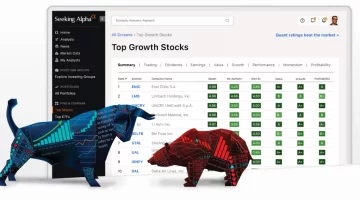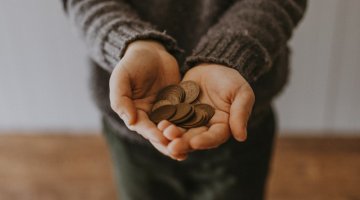Harnessing Stock Market Volatility
If you were to Google "stock market volatility", you would find a wide range of observations, conversations, reports, analyses, recipes, critiques, predictions, alarms, and causal confusion. Books have been written; indices and measuring tools have been created; rationales and conclusions have been proffered. Yet, the volatility remains.
Statisticians, economists, regulators, politicians, and Wall Street gurus have addressed the volatility issue in one manner or another. In fact, each day's gyrations are explained, reported upon, recorded for later expert analysis, and head scratched about.
The only question I continue to have about all this comical hubbub is why don't y'all just relax and enjoy it? If you own only high quality income generating securities, diversify properly, and adopt a disciplined profit-taking routine, you can make stock market volatility your very best friend (VBF).
Decades ago, a nameless statistics professor brought me out of a semi-comatose state with an observation about statisticians, politicians, and economists. "In the real world", he said, "there are liars, damn liars, and any member of the groups just mentioned". An economist or a politician, armed with a battery of statistics, is an ominous force indeed.
Well, now, all economists and statisticians have high powered computers and the ability to analyze volatility with the same degree of certainty (or is it arrogance) that they have developed with regard to individual-stock risk analysis, economic and geographical sector correlation dynamics, and future prediction in general.
- But the volatility (and the uncertainty it either causes or results from, depending upon the expert you listen to) persists.
Since they can predict the future with such a high degree of probability, and hedge against any uncertainty with yet another high degree of probability, why then is the financial world in such a chronic state of upheaval? And why-o-why does the volatility, and the uncertainty, continue?
I expect that you are expecting an opinion (yet another opinion) on why the volatility is as pronounced as it seems to be compared with years past. Frankly, Scarlett, I can't really make myself give a damn. The uncertainty that we are asked to believe is caused by volatility just simply is not. Uncertainty is the regulation playing field of the investment game... and of life, actually.
The more you invest in higher risk securities, the more you speculate on future directional change, the more you ignore growing income, and focus only on market value, the more uncertain your investment environment becomes. So risk, speculation, poor diversification, low income generation, and up only market value expectations combine to exacerbate uncertainty, but nothing can eliminate it... only that is certain.
Volatility, on the other hand is simply a force of nature, one that needs to be embraced and dealt with constructively if one is to succeed as an investor.
But this machine driven, hyper-volatility that we have been experiencing recently, has been magnified by the darkest forces of the "dismal science" and the changes that it has encouraged in the way financial professionals view the makeup of the modern investment portfolio.
On the bright side, enhanced market volatility actually enhances the power of the equity and income security trading disciplines and strategies within the Market Cycle Investment Management ( MCIM ) methodology... an approach to market reality that embraces market turbulence, and harnesses market volatility for results that leave most professionals either speechless or in denial.
- MCIM focuses on the highest quality equity securities and well diversified income security portfolios, creating a lower than normal risk environment where price fluctuations can be dealt with productively, without panic. Higher prices generate profit taking transactions; lower prices invite additional investment. The underlying quality, diversification, and income generation create a more tolerable "uncertainty quotient" than other methodologies.
Volatility is a function of supply and demand for the common stock of a finite number of dirty, evil, greedy, polluting, congress corrupting, job creating, product and service providing, innovation and wealth developing, foundation supporting, gift giving, tax-collecting corporations.
Those of us who trade common stocks in general, Investment Grade Value Stocks in particular, owe a debt of gratitude to the real volatility creators: the hundreds of thousands of derivative products that bring an entirely speculative kind of indirect supply and demand to the securities markets.
Generally speaking, the fundamental, emotional, political, economic, global, environmental, and psychological forces that impact stock market prices have not changed significantly, if at all.
Short term market movements are just as unpredictable as they have ever been. They continue to cause the uncertainty you need to deal with, by using proven risk minimization techniques like asset allocation, diversification, and profit taking.
The key change agents, the new kids on the block, are the derivative betting mechanisms (Index ETFs, for example) and their impact on the finite number of shares available for trading. Every day on the stock exchange, thousands of equities are traded, a billion shares change hands. The average share is "held" for mere minutes. No one seems to we seek out analysts who spin tales of "fundamental" brilliance, profitability, or income production.
On top of derivative trading in real things such as sectors, countries, companies, commodities, and industries, we have a myriad of index betting devices, short-long parlor games, option strategies, etc. What's a simple common share of Exxon to do? I've heard financial talk show hosts warn listeners to never, not ever, buy an individual equity!
- Is today's movement in any individual equity the result of demand for the company shares themselves, or demand for the multiple funds, indices, and other derivatives that track or include the company in their "model"? How many derivative owners have a clue what's inside their ETF?
Market volatility is here to stay, at least until multi-level and multi-directional derivatives are relocated to the Las Vegas casinos where they belong, until regulators realize that 7% after higher expenses is better than 2% after minimal expenses, and until interest rates are allowed to return to somewhat normal levels... and this is what feels to some like an elevated level of uncertainty.
For the discernible future, we'll need to find a way, a methodology, that makes both of them our VBFs.
My articles always describe aspects of an investment process I have been using since the 1970's, as described in my book, "The Brainwashing of the American Investor". All the disciplines, concepts, and processes described therein work together to produce (in my experience) a safer, more income productive, investment experience. No implementation should be undertaken without a complete understanding of all aspects of the process.
More to Read:
Previous Posts:








